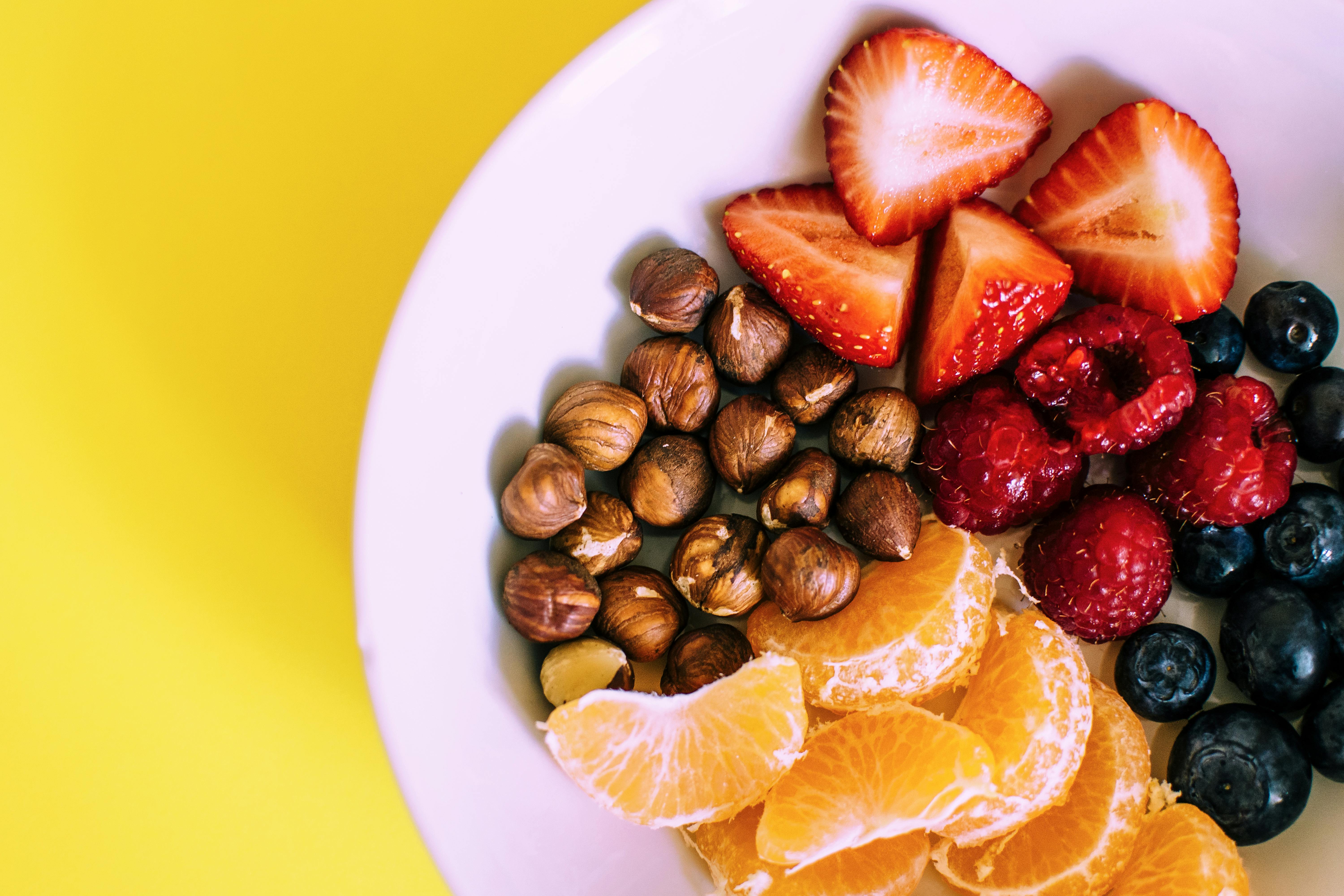Have you started working out since the new year? And are you feeling the benefits? Have you been an avid athlete training for an upcoming event? Whether competitive or recreational, physical activity puts extra demands on your body. So you need to make sure you recover with well-rounded nutrition, water, and rest.
You use more energy, lose more fluid, and put extra stress on your muscles, joints, and bones. No matter what your physical activity level is, good nutrition is fundamental to fitness. So, how do you determine what your body needs?
Our registered dietitian, Amber Worst, has shared the importance of hydration and energy replacement, and how much protein your body actually needs for fuel, so you can power through your workouts and recover properly.
Hydration 101
Hydrating your body is important, no matter your activity level. Adequate hydration helps with energy production, keeps you cool during exercise, and acts as a cushion around your body's tissues and organs.
To make sure you get enough fluids, it’s a good idea to track your intake. Make it a point to drink fluids at all times during the day, not just after a workout or a competition.
How do you know how much fluid is enough? Well, every person's body is different. There is no perfect way to calculate your exact fluid needs for the day, but the more you perspire, the more fluids you need.
For fluid needs based on your weight and activity level, you can use these formulas:
Activity Level Body Weight x Fluids per Pound = Total Daily Fluids
Average: _____pounds x 0.5 fluid ounces = ____fluid ounces
More active: _____pounds x 0.66 fluid ounces = ____fluid ounces
Energy replacement
Just as every body is different with hydration needs, so is every body with its energy needs. It's not surprising that some sports or activities burn more energy than others—some are more intense, or the duration is longer.
If someone is over-consuming calories, risk of weight gain is present. Consuming too few calories is risky, too. Muscle loss, a decrease in bone density, and higher chance for fatigue, injury, and longer recovery can occur.
Smart eating for adequate energy starts when you focus on total diet. One that supports a healthy weight and can prevent or reduce risk of chronic disease by choosing nutrient-dense foods and beverages. To power working muscles, focus on all food groups including carbohydrates, fat, and protein.
Start with an energizing breakfast to refuel your body after 8-12 hours without a meal or snack.
Here are some nutrient dense breakfast ideas:
—Grab and go bran muffin and a banana. Pair them with 1/2 cup of cottage cheese for added protein.
—Toast with two tablespoons peanut butter.
—Oatmeal with milk and topped with two tablespoons walnuts.
You can also enjoy some healthy snacks before or after your workouts for an extra boost:
—Smoothie, made with yogurt and frozen berries.
—Graham crackers with peanut butter, low-fat chocolate milk, and a banana.
—Raw veggies and hummus.
—Whole grain crackers and string cheese, along with whole fruits.
Regularly eating healthier meals provides good nutrition throughout the whole day. Here are some healthy meal ideas:
—Whole wheat pita sandwich or wrap with turkey and veggies. Add some pretzels and low-fat milk.
—Stir fry with lean protein, bell peppers, broccoli, and carrots, and pair with some brown rice.
Powering with protein
Protein is important for building muscles and is essential for making enzymes and hormones, and regulating body processes like water balance. So, for overall fitness or strength building do we need extra protein? Beyond the recommended amount increased protein hasn't been shown to offer added performance benefits.
Over consumption of protein is either used as energy or stored as body fat. Also, contrary to what some may believe, consuming extra protein has not been shown to increase muscle—only training builds muscle strength and size. Not to mention, a high-protein diet may also be high in fat.
For anyone, protein should supply 10-35% of their overall calorie intake. Meat, poultry, fish, eggs, and dairy foods are excellent, high-quality protein sources. Beans, peas, tofu, nuts, seeds, and peanut butter are also great sources for protein.
Most recreational exercisers need 0.5 to 0.75 grams of protein per pound of body weight every day. For example, a 150-pound athlete would need 75-115 grams of protein each day. Protein is best digested by spreading it out throughout the day, not consuming all in a large amount.
Check out the chart below to reference grams of protein in common food and drinks.
|
Food item |
Serving size |
Calories |
Protein (in grams) |
|
Grilled chicken breast |
3 ounces |
128 |
26 |
|
Baked salmon |
3 ounces |
133 |
23 |
|
Egg |
one large |
72 |
6 |
|
Soybeans (edamame) |
half cup |
94 |
9 |
|
Smooth peanut butter, reduced fat |
2 tablespoons |
187 |
9 |
|
Low-fat milk |
8 ounces |
102 |
8 |
|
Unsweetened almond milk |
1 cup |
39 |
2 |
Being physically active is important at every age. Whether you're active in your daily life or in sports—or both—remember, nutrition is fundamental to fitness. Healthy eating and adequate fluids help you feel good, stay fit, and give you a positive mental edge.
For more insight on your specific nutritional needs, contact your doctor or a registered dietitian.
We hope this nutrition deep dive will help you fuel your workouts and reach your fitness goals. At OnSite Wellness LLC, health and wellness is our specialty.
Incorporating a wellness program at your workplace can have massive benefits for your employees in managing their health. Contact us to learn more!
-1.png?width=300&name=1127895_OSW%20Tagline%20Logo_081021%20(1)-1.png)


